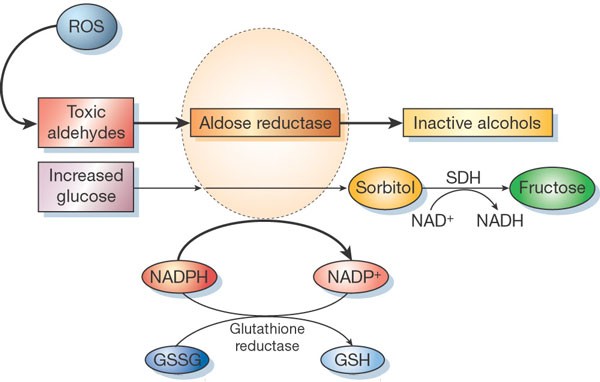Biochemistry of Diabetes
The correlation between offspring of individuals with diabetes and biochemistry is rooted in how biochemical processes in diabetes lead to vascular complications. Microvascular and macrovascular problems can arise from diabetes mellitus. The classic microvascular complications are neuropathy in the legs causing sensory loss, poor wound healing, and chronic kidney failure.
An elevated risk of atherosclerosis of arteries of all sizes throughout the arterial tree leads to macrovascular problems. This raises the risk of peripheral vascular disease, cerebrovascular disease, and myocardial infarction, or heart attack. Improved glycemic control lowers the chance of developing microvascular and macrovascular disease, according to numerous studies. The article explains that chronic hyperglycemia causes the formation of advanced glycation end products (AGEs), increases oxidative stress, activates protein kinase C (PKC), and leads to sorbitol accumulation. Sorbitol accumulates intracellularly in cases of hyperglycemia as well. The enzyme sorbitol dehydrogenase (SDH) ordinarily converts sorbitol to fructose, however persistent hyperglycemia inhibits this process. A build-up of sorbitol can cause osmotic stress and harm to cells, especially in tissues like the kidneys, nerves, and retina that have little or no SDH. A build-up of sorbitol can cause changes in the way cells function, such as decreased energy generation, increased oxidative stress, and altered mitochondrial activity.


Comments
Post a Comment